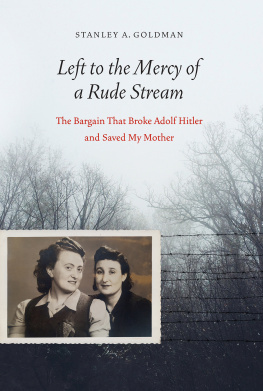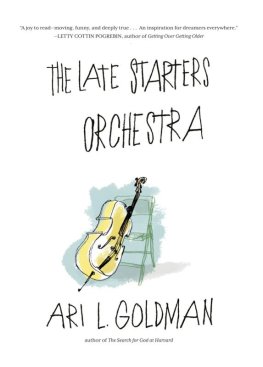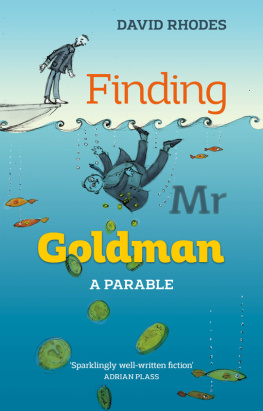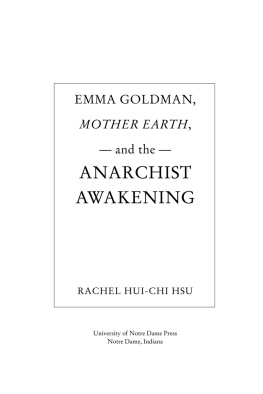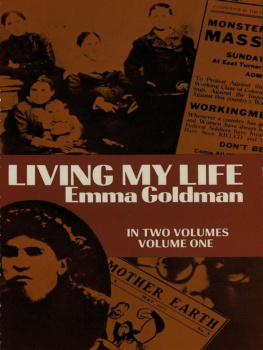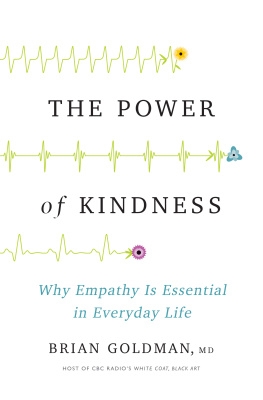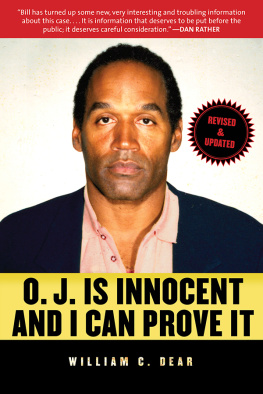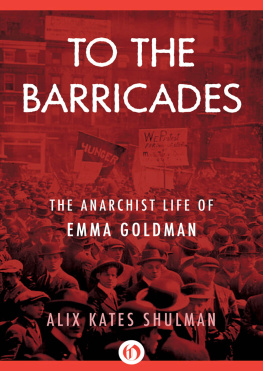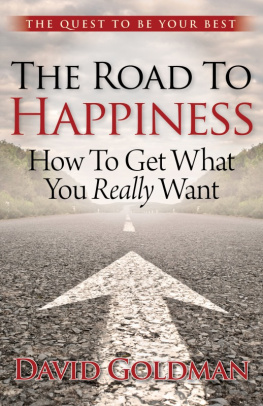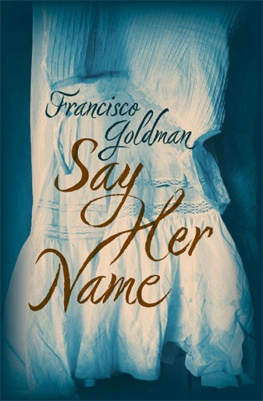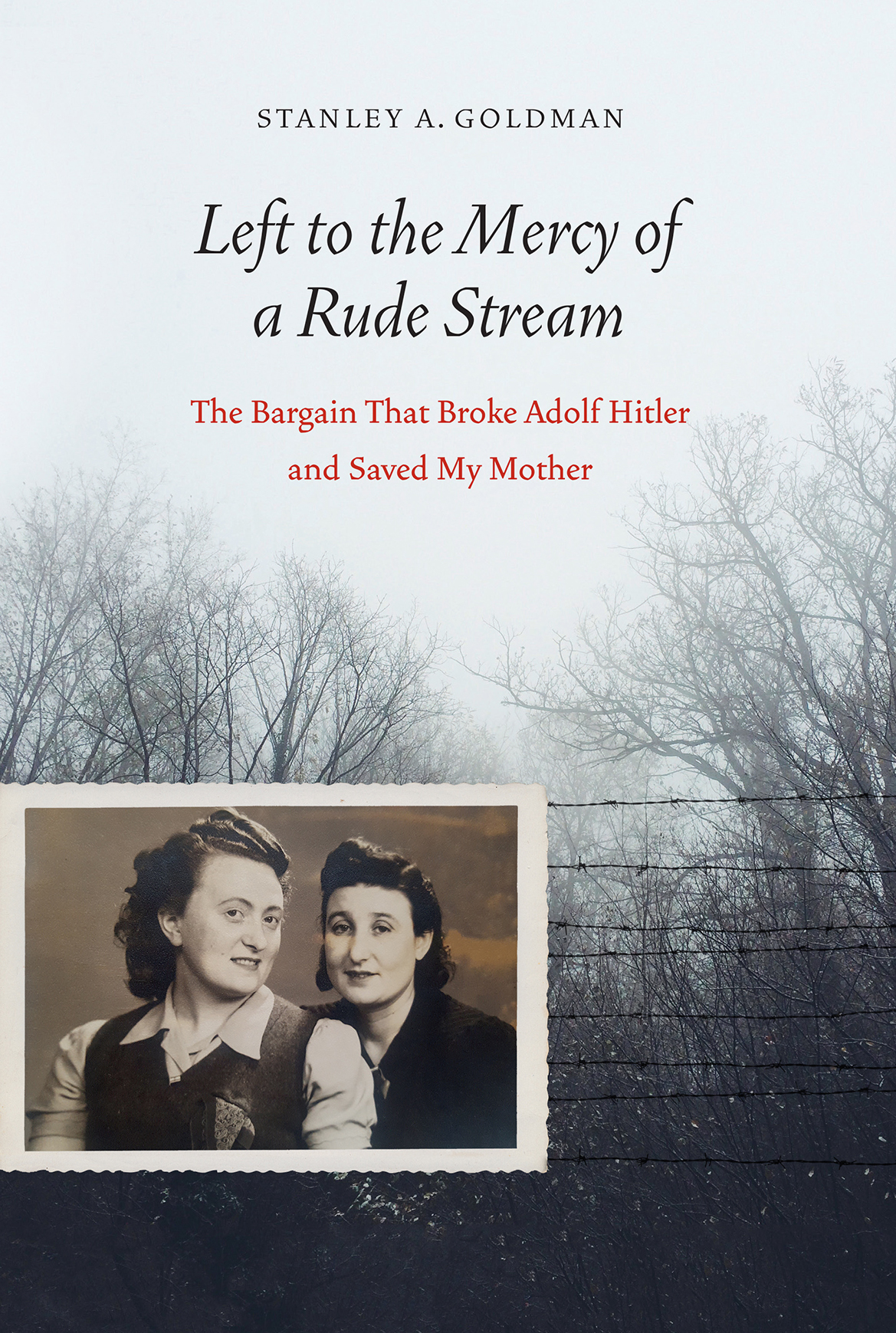
Professor Goldmans account of this previously untold moment in history is seismic. What a tale! It is not only purposeful but also riveting and enlightening. Its a must-read, especially at a time when, sadly, there are creeping global similarities to the festering mindset in the run-up to World War II.
Ashleigh Banfield, host of HLN s Crime and Justice with Ashleigh Banfield
A harrowing, haunting memoir and history. I couldnt put it down.
Charles Rosenberg, author of The Trial and Execution of the Traitor George Washington
Stanley Goldman has written what may perhaps be the last genre of Holocaust memoirs. The son of a Holocaust survivor, he has pieced together his mothers story and told it with respect and dispassion.... The result is a powerful work that probes the past and its indelible impact on those who have been directly touched by it. He writes with candor but not with rancor, a feat as remarkable as it is rare.
Michael Berenbaum, director of the Sigi Ziering Institute and professor of Jewish Studies at the American Jewish University
Powerful. Its riveting.
Geraldo Rivera
Left to the Mercy of a Rude Stream
The Bargain That Broke Adolf Hitler and Saved My Mother
Stanley A. Goldman
Potomac Books | An imprint of the University of Nebraska Press
2018 by Stanley A. Goldman.
Potomac Books is an imprint of the University of Nebraska Press.
Acknowledgments for the use of copyrighted material appear in , which constitutes an extension of the copyright page.
Cover designed by University of Nebraska Press; cover background image Stocksy.com/GIC; portrait is from the interior.
Author photo Kim Fox.
All rights reserved.
Library of Congress Cataloging-in-Publication Data
Names: Goldman, Stanley A. (Lawyer), author.
Title: Left to the mercy of a rude stream: the bargain that broke Adolf Hitler and saved my mother / Stanley A. Goldman.
Description: Lincoln: Potomac Books, an imprint of the University of Nebraska Press, [2018] | Includes bibliographical references and index.
Identifiers: LCCN 2018011997
ISBN 9781640120440 (cloth: alk. paper)
ISBN 9781640121492 (epub)
ISBN 9781640121508 (mobi)
ISBN 9781640121515 (pdf)
Subjects: LCSH : World War, 19391945JewsRescueGermany. | Repstein, Malka. | Jewish women in the HolocaustGermany. | World War, 19391945Concentration campsGermanyBiography. | Ravensbrck (Concentration camp) | Masur, Norbert, 19011971. | Goldman, Stanley A. (Lawyer)
Classification: LCC D 804.6 . G 65 2018 | DDC 940.53/18092 [B]dc23 LC record available at https://lccn.loc.gov/2018011997
The publisher does not have any control over and does not assume any responsibility for author or third-party websites or their content.
May Day [1945] I witnessed... in the liberated concentration camp at Ebensee... inmates [parading] around carrying the flags of Poland, the Soviet Union, Czechoslovakia, and other lands from which they had come. Only one group, the most emaciated and tattered, marched without a banner. When I asked some of the other inmates, Who are those who carry no flag and why are they not marching with the national groups? I was told scornfully,
Oh, they cant march with us. Theyre the Jews!
Benjamin B. Ferencz, Less Than Slaves
Contents
I noticed blood in my mouth and discovered that a shard of glass was embedded in the hamburger I had ordered at a local coffee shop. I was thirteen, and my mother, insistent on suing, took me to the lawyer who had written my late fathers will, and who knew us well enough to have attended my bar mitzvah a few months earlier. His name was Donald Sterling, and he would later become the controversial billionaire owner of a Los Angeles NBA basketball team. Though still a young man who had started his own practice just a few years earlier, he already employed several attorneys. My case was assigned to an affable, heavyset gentleman in early middle age with a slight southern accent who, in spite of his being at least fifteen to twenty years older than his employer, seemed terrified of his much younger boss.
While he and I sat alone in his office I was startled to hear how impressed he was by my mother, who, he had just learned, had lived through the Holocaust. It was only recently that this gentile had come into contact with survivors. I said nothing as he made the odd and, I thought, rather far-fetched suggestion that being a child of that community of postwar Jewish migrs, I was in a special position to write the story of those who had outlived the Nazi plague.
I couldnt quite figure out what he expected me to know and what I could tell people. Almost all my closest early childhood playmates had been children of my mothers survivor friends. Werent we just like anybody else? I didnt see how our lives would be of interest to anyone. Surely everybody already knew about the Germans camps.had known something other people didnt, the thought of ever writing anything seemed pretty unlikely to my thirteen-year-old self since of all my friends I was easily the worst student. In an era before anyone had ever heard of dyslexia, I was the slow one who couldnt even read. Having already been held back one semester, I was pretty sure I was being promoted from grade to grade simply because I was the oldest kid in my class. Yet, I never did forget my lawyers peculiar advice.
After years of remedial classes, and at just about the time they graduated me from high school, I began to read at something approaching an average level. Able to understand the textbooks and do the homework, I soon transferred out of junior college to UCLA and then continued on to law school.
Careers in social justice turn out to be particularly common among children of Holocaust survivors, and sure enough I spent my first eight years in practice as a public defender in downtown Los Angeles. Ironically, given my early academic struggles, I would spend the remainder of my professional life as, of all things, a tenured law professor teaching criminal law and evidence; although with more than a decade-long overlapping stint as a cable news network correspondent, legal analyst, and occasional TV host. I am convinced I am the only person who collects, or will ever collect, a monthly pension check from both the Los Angeles County Public Defender and the Fox News Channel.
Communicating, in one form or another, has been my life. I have appeared as counsel at every level of state and the federal court, from defending drunk drivers before local traffic commissioners to the United States Supreme Court in a landmark Confrontation Clause case. I published over eighty newspaper stories as a special correspondent and Sunday columnist for the New York Daily News and authored more than a dozen lengthy articles in scholarly law journals, yet as the decades passed I never wrote a word about the Shoah.
Like many survivors, my mother almost never spoke of the specifics of how she had outlived a war to give birth to me in Los Angeles. She remembered the suffering all too well, but she never learned that her life had actually been saved by a bizarrely improbable and little-known bargain struck between a single German Jew with a Swedish passport and the worst mass murderer of the Third Reich.
My own discovery process began in 2006, seven years after her death, when I traveled to Israel during summer break to visit the woman who had been my mothers best friend during the war and with whom she had survived. The womans eldest daughter, Dvora, happened to show me a pamphlet published in Hebrew, which she had acquired from the Israeli Holocaust History Museum at Yad Vashem nearly two decades before. It was a report made to the World Jewish Congress documenting the authors late war efforts to negotiate with Heinrich Himmler, the Nazi interior minister and SS head, for the release of a group of Polish Jewish women from the death camp at Ravensbrck.
Next page
